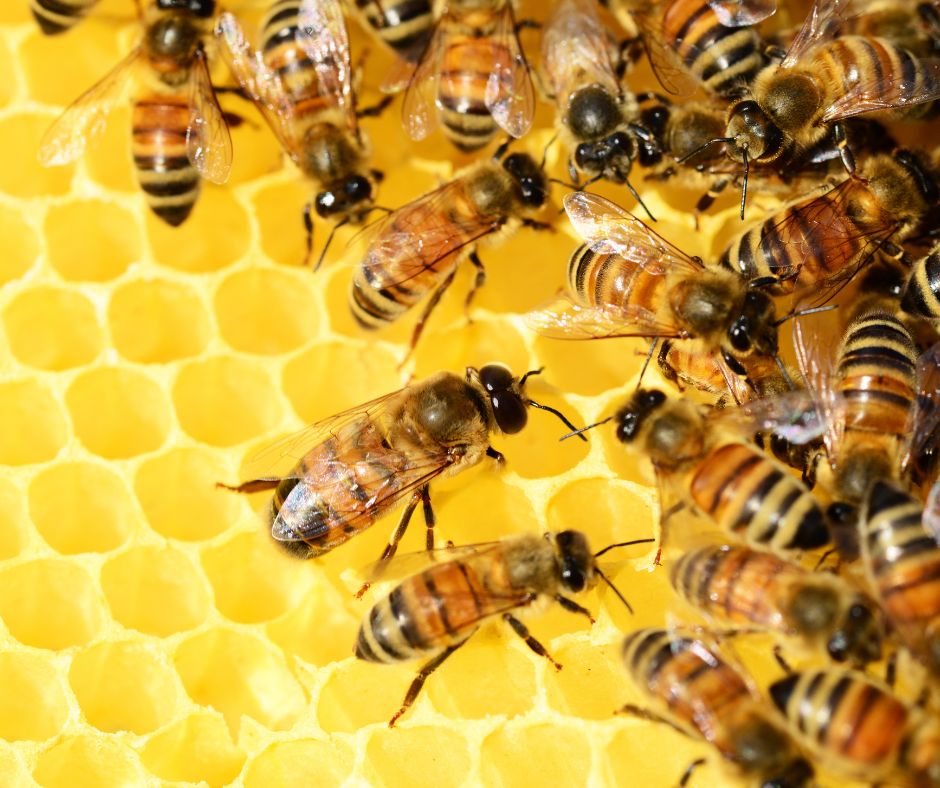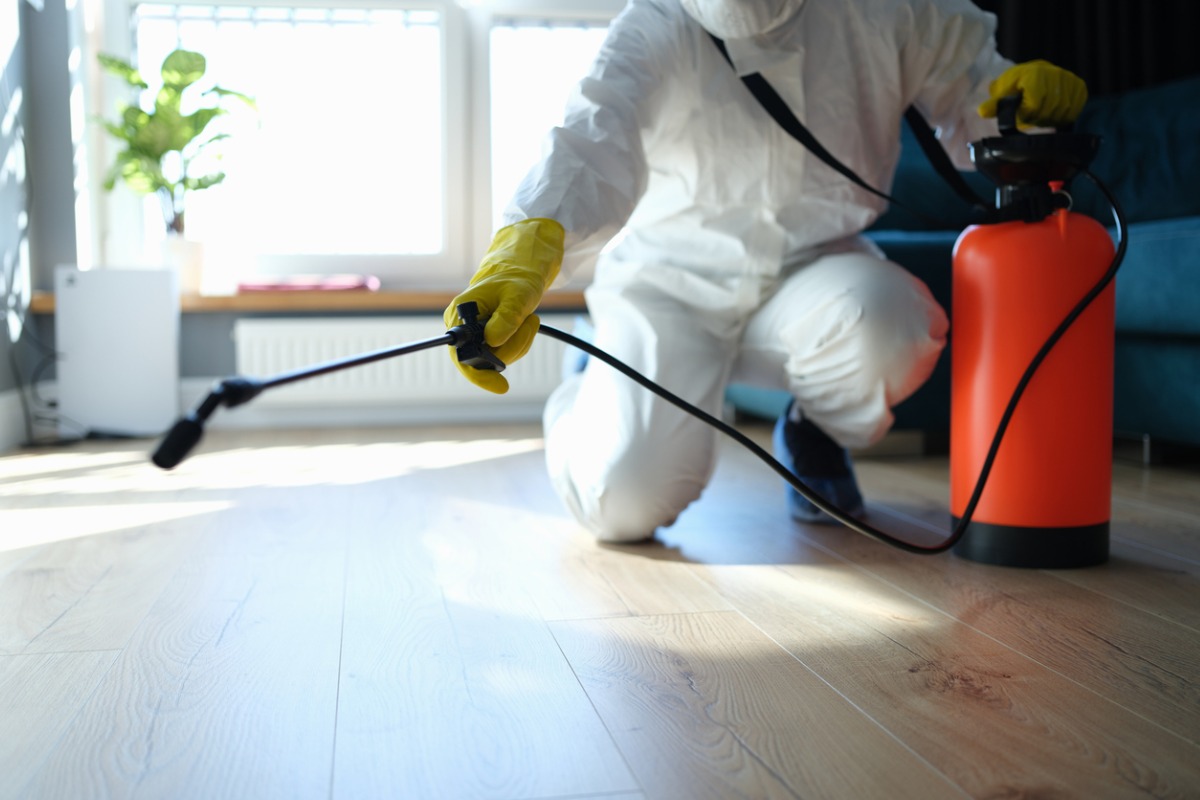Trusted Rodent Control Port Charlotte to Keep Your Property Clean from Rodents
Wiki Article
Find Out About the Most Recent Advancements in Parasite Control and Exactly How to Execute Efficient Treatment Solutions
In current years, the field of insect control has actually witnessed significant advancements, driven by the demand for lasting and effective therapy options. Cutting-edge methods such as Integrated Bug Management (IPM) integrate green practices with advanced innovation, enhancing both efficiency and ecological obligation.Eco-Friendly Pest Control Options
In recent times, the demand for environmentally friendly pest control options has actually risen as organizations and homeowners alike look for sustainable choices to typical chemical therapies. This change is driven by expanding ecological understanding and a wish to reduce the health threats connected with synthetic pesticides.

Environment-friendly insect control methods include a series of techniques that focus on using natural materials and practices. Integrated Insect Management (IPM) is one such technique, combining biological, cultural, and mechanical techniques to take care of pest populations while minimizing reliance on chemicals (Wildlife removal services). This alternative approach emphasizes prevention via environment manipulation and the introduction of natural predators, consequently cultivating a balanced environment
An additional preferred alternative is the use of herb pesticides originated from plants, which tend to be much less damaging to non-target microorganisms. Products like neem oil and diatomaceous planet have actually obtained grip for their performance in regulating pests while positioning very little risks to human health and wellness and the atmosphere.
Additionally, exclusion strategies, such as sealing access factors and preserving tidiness, play a critical duty in green pest management. By adopting these sustainable techniques, people and organizations can efficiently take care of parasites while advertising a much healthier world for future generations.
Smart Technology in Pest Monitoring
Development is reshaping the landscape of bug administration, with smart technology becoming an essential force in enhancing efficiency and performance - Wildlife removal services. The combination of Internet of Points (IoT) tools, artificial knowledge (AI), and data analytics is transforming just how bug control experts come close to invasions
Smart catches equipped with sensing units can find insect task in real-time, sending immediate informs to operators. This enables timely responses, decreasing damage and lowering the requirement for extensive therapies. In addition, AI formulas analyze historic data to anticipate pest actions, allowing positive treatments based on ecological conditions and invasion patterns.
Drones and automated automobiles are also playing a considerable role in bug monitoring, offering airborne assessments of big locations, identifying hotspots, and also dispersing targeted treatments. These modern technologies not only enhance procedures but additionally improve safety by limiting human direct exposure to possibly hazardous chemicals.
In addition, mobile applications empower consumers to keep track of parasite activity and gain access to specialist advice, fostering a collective strategy to pest management. Generally, the fostering of clever technology is setting a new criterion in parasite control, stressing data-driven decisions and sustainable methods that inevitably profit both specialists and homeowners alike.
Integrated Bug Monitoring Strategies
Integrated Pest Management (IPM) utilizes an alternative technique to pest control, integrating various strategies to efficiently handle pest populations while decreasing dangers to human health and the environment. IPM focuses on recognizing the pest life process, their natural enemies, and the ecosystem in which they flourish.One of the essential parts of IPM is checking pest populaces via normal assessments and information collection. This permits the recognition of parasite limits, establishing when treatment is needed. Cultural practices, such as plant habitat, rotation, and hygiene control, are necessary in minimizing bug occurrence and promoting plant wellness.
Mechanical controls, consisting of traps and obstacles, are likewise important in IPM. These approaches can literally remove or deter parasites without using chemicals. When essential, the judicious application of chemical controls is employed, concentrating on targeted treatments that decrease ecological impact.
Education and learning and collaboration amongst stakeholders, including farmers, parasite control specialists, and the area, are critical for the successful application of IPM methods. By prioritizing lasting practices, IPM not just addresses pest concerns however also fosters a healthier environment.
Biological Control Approaches
Numerous organic control techniques are significantly recognized for their effectiveness in taking care of pest populations while advertising ecological balance. These approaches harness all-natural predators, bloodsuckers, and pathogens to reduce pest numbers without counting on synthetic chemicals. For circumstances, the introduction of ladybugs can efficiently control aphid populaces, while nematodes target soil-dwelling insect larvae.In addition, the use of microbial chemicals, such as Bacillus thuringiensis (Bt), offers an eco-friendly choice for taking care of caterpillar parasites. These products particularly target pest varieties, lessening harm to advantageous bugs and pollinators. Furthermore, conservation biological control stresses improving environments for natural enemies, such as birds and useful insects, thus motivating their visibility in agricultural systems.
Research study proceeds to reveal ingenious approaches within this field, such as the usage of pheromones to disrupt pest breeding patterns or the development of biocontrol representatives via genetic modification. Carrying out these approaches can lead to lasting insect monitoring techniques that mitigate the reliance on chemical interventions, eventually fostering much healthier environments. As recognition of these techniques grows, they are becoming indispensable elements of integrated insect monitoring (IPM) strategies, using a balance in between reliable bug control and environmental stewardship.
DIY Pest Control Solutions
As homeowners look for effective methods to take on bug issues, do it yourself bug control services have gained popularity for their availability and cost-effectiveness. These techniques equip people to attend to invasions making use of readily offered materials and strategies, usually without the demand for specialist treatment.
Additionally, maintaining proper cleanliness and regular inspections can stop parasite entry and nesting (Wildlife removal services). Easy methods, such as sealing fractures, eliminating food resources, and decluttering, can considerably reduce bug populaces. Catches, both homemade and readily readily available, can also offer effective solutions for monitoring and controlling details pests like rodents or insects

Conclusion
The assimilation of eco-friendly insect control options, wise modern technology, and cutting-edge management strategies provides a detailed technique to reliable parasite monitoring. By accepting Integrated Parasite Monitoring (IPM) and making use of organic control methods, alongside DIY solutions, responsible and sustainable pest control can be achieved.Environmentally friendly insect control methods encompass a range of techniques that prioritize the use of all-natural materials and techniques. Integrated Bug Administration (IPM) is one such technique, integrating biological, cultural, and mechanical tactics to manage parasite populaces while reducing dependence on chemicals. As recognition of these strategies expands, they are ending up being essential components of incorporated parasite administration (IPM) techniques, offering a balance in between efficient insect control and Rodent control Port Charlotte environmental stewardship.
The assimilation of green bug control choices, smart modern technology, and innovative management techniques offers an extensive technique to effective insect management. By accepting Integrated Parasite Management (IPM) and using organic control methods, together with DIY options, lasting and responsible bug control can be attained.
Report this wiki page